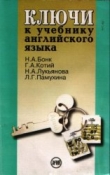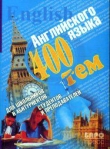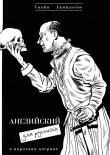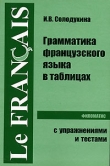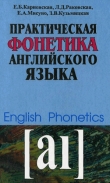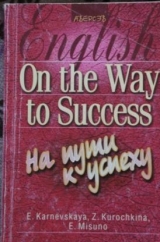
Текст книги "On the Way to Success. На пути к успеху"
Автор книги: Елена Карневская
Жанр:
Иностранные языки
сообщить о нарушении
Текущая страница: 4 (всего у книги 13 страниц) [доступный отрывок для чтения: 5 страниц]
16. Present Simple/Past Simple/Future Simple/
Present Perfect/Past Perfect/Past
Perfect Continuous
Yesterday I (receive) a phone call from an old friend who I (not/hear) from for months. I (ask) him what he (do) lately, and he told me that he (spend) the past three months sailing around the world on an old-fashioned sailing ship. I always
(love) everything to do with the sea, so I was very excited to hear that he (manage) to do something so thrilling. I (ask) him if we (can) get together soon and (make) him promise that he (bring) all the photos he (take). When he (come) next week, Г11 expect him to tell me exactly what the trip (he) like.
17. Past Simple/Present Continuous/Present Perfect/Past Perfect/Past Perfect Continuous
Yesterday evening Sally (miss) the last bus home because she (work) late at the office, so she (decide) to get a taxi. She (get) into the first one that (come) along, but immediately (regret) that she (do) so, because the driver (seem) a bit crazy. After he (go) through the third red light at top speed Sally said, 'You (drive) a bit too fast. Please slow down. I (be) in two car accidents already in my life'. 'That's nothing', (reply) the driver. 'I (be) in over a hundred!'
18. Present Simple/Past Simple/Past Continuous/ Past Perfect/Past Perfect Continuous
I (walk) down the street the other day when I (bump) into an old friend of mine. We (be) friends at university but we (lose) touch. We (talk) for a few minutes and he (tell) me that he (work) with computers for the past two years. I (can) hardly believe it; he (do) a drama degree at university and (act) in several films when he was younger. It (be) funny how things (turn out) sometimes.
1.8. THE USE OF TENSES IN THE PASSIVE VOICE
FORMATION
The Passive voice is formed with the help of the auxiliary be in the appropriate form and the Past Participle of the main verb (see Table 13).
Tense
Structure
Example
Present Simple
am/are/is + Past Participle
English is spoken here.
Past Simple
was/were + Past Participle
His leg was hurt in an accident.
Future Simple
shall/will + Past Participle
The matter will be discussed tomorrow.
Present Cont.
am/are/is being + Past Participle
She is being interviewed now.
Past Continuous
was/were being + Past Participle
I felt I was being watched.
Present Perfect
have/has been + Past Participle
My brother has never been beaten in tennis.
Past Perfect
had been + Past Participle
The bridge had been built by winter time.
Future Perfect
will have been + Past Participle
Everything will have been done by Tuesday.
Note 1: Future Continuous Passive (will be being + Past Participle) and Perfect Continuous Passive (have been being + Past Participle, etc.) are unusual and are not normally used. Note 2: Passive Infinitives are used with 'to' or without 'to' in the same way as Active Infinitives: e.g.
The pupils must be warned about the change in the time-table. The letter doesn 't have to be sent
tomorrow.
USAGE
The use of the verb-tenses in the passive voice is determined by the same principles as in the active voice. Yet a passive construction is not merely a transformation of the active one. It is made to show that the subject of a sentence is not the
doer of the action but the receiver of it. Hence the passive
voice has its own uses marked by the shift of focus from the doer of the action to the action itself which is typical of more formal speech.
Customers are requested to ask for a receipt. When were you told about the new rules? The floor is filthy. It must be scrubbed.
PRACTICE
I. Open the brackets using the appropriate passive forms.
1. The Tower of London formerly (use) as a prison.
2. Progress (make) every day in the world of science.
3. He saw that the table (push) into the corner.
4. Empty bottles must (throw away), the sooner the better.
5. Photographs (take) after the ceremony.
6. I never (speak to) like that before.
7. Ann (show) how to bath a baby by her elder sister.
8. A big battle (fight) here 200 years ago.
9. These books must not (take) away from the reading-room. 10. Milk (use) for making butter and cheese.
I1. In some countries women still (deny) the right to vote.
12. My uncle recently (make) a captain.
13. She fell into the water because she (push).
14. We (suppose) to take your remark seriously?
15. They say she (interview) for the job tomorrow.
16. The newspaper (deliver) before I got up this morning.
17. Milk can (buy) at the shop on the corner.
18. We (tell) there (be) a private bathroom for every room.
19. Next week we (tell) who will be in charge of the department.
20. I phoned the police when I found out that my passport (steed).
21. A new plug for the television must (buy).
22 Smoking (not/allow) in this part of the building.
23 I (tell) that fifty people (invite) to the reception.
24' The National Gallery (restore) at the moment.
25 During the Gulf War many oil wells in Kuwait (damage).
26 He (arrest) by a security guide, who later admitted he had made a mistake.
27 When I entered the room Richard still (examine).
28. I wonder who else is going (to invite).
29. Oranges usually (treat) with wax and then (store) in large boxes.
30. We can't take the car yet: it still (repair).
31. The windows are really dirty: they (not/clean) for years,
32. Do you need (wake) up in the morning?
33. The local cinema (close down) three years ago.
34. Very few typewriters (sell) these days.
1.9. MISCELLANEOUS PRACTICE ON THE USE OF THE VARIOUS TENSE-FORMS IN THE ACTIVE/PASSIVE VOICE
1. Bernard and Francis Bashet (be) brothers. They (live) in Paris and (work) with new sounds and shapes for making music. But they always (not/do) this, though; for a long time Bernard (manage) a factory and Francis (run) a business in Argentina. Then about 30 years ago they (take) their savings and (begin) the work they (do) now. First they (learn) about how classical musical instruments (make). And since that time they (begin) inventing their own musical instruments. Now their lives (be) quite varied. They still (invent) new instruments; but Bernard recently (start) working with children as well. He (help) them to discover music without having to read written notes. He and Francis sometimes (travel) too giving concerts on their instruments or setting up exhibitions. Bernard's main complaint? The telephone. 'When an artist (work) ', he said, 'and he (have) to run to the telephone,
something (break) inside. I (agree) with the sculptor who once (say) that freedom for an artist (mean) having a secretary'.
2. It (rain) when we (arrive) at the coast but by midday the rain (stop).'We (think) the rain (last) all day and we (be) very glad it (not/do) because we (want) to do swimming. We (find) a cafe where we (offer) a nice meal. By the time we (finish) lunch the sun (come) out and the temperature (rise) to 30 degrees. We all (run) down to the beach and after we (change) into our swimming things we (dive) in the sea.
3.1 remember going on holiday abroad for the first time. I just (leave) school. I (study) very hard for my final exams. And I (feel) that I (need) a holiday. A friend of mine (want) to come as well so we (look) at some brochures from the travel agent's. We (read) for about an hour when my friend (find} the perfect holiday – two weeks in Hawaii. We (be) very excited about it. Finally the day of our holiday (arrive). We just (leave) the house when the phone (ring). I (run) back into the house, but the phone (stop) by the time I (reach) it. When we (arrive) at the airport we (learn) that our flight (delay) for six hours. We (get) up very early and rushed to the airport, all for nothing.
4. As soon as little Michelle (take) to hospital her ankle (X-ray) and the X-ray plates (give) to the doctor. He (examine) her ankle thoroughly and (decide) that it (have) to be put in plaster at once. Although her ankle (be) painful, she (not/cry) and everybody (say) how brave the girl (be). Now Michelle's ankle gradually (get) better and the doctor just (tell) her mother that he (be) able to take off the plaster next Monday. Then she (send) home if everything (be) all right.
5. One morning last week I (realize) that my bike (steal) from my garden. I (phone) the police and two officers (come) to my house the next day. I (ask) if I (see) or (hear) anything. I (tell) them I (be) out that evening, and (not/notice) anything suspicious when I (return) home.
Before the policemen (leave) they (tell) me that I (inform) as soon as the bike (find). However, there (be) a happy ending to this story. In the evening I (phone) by a friend of mine. «By the way,» she (say), «if you (need) your bike, I (bring) it back this afternoon. I (borrow) it a couple of days ago.»
6. Dear Mum and Dad,
Just a quick note as I (be) in a tearing hurry. Guess what -I just (interview) by a journalist who (ask) me lots of questions about how I (get) on here in America. There (go) to be an article about me in the local paper. Fame at last! I (send) you a copy as soon as it (come) out. Anyway, the journalist (wonder) if I (enjoy) my stay and how long I (be) in the States. He also (ask) me a rather embarrassing question: 'You (like) American food?' You know I can't stand it! He also (want) to know why I (come) to the States and what I (remember) most and best about the country when I (come) back home. I (find) those questions difficult to answer as I only (be) here two weeks. Don't forget to show the article to everyone!
Love,
Andrej
7. With about 200.000 words in current usage, English (regard) as the richest of the world's languages. Few other languages can match this word power. English (owe) its exceptionally large vocabulary to its ability to borrow and absorb words from outside. Atomic, jeans, khaki and sputnik (be) just a few of the many words that (come) into use quite recently. They (take) or (adopt) from Italian, Hindi, Greek and Russian.
This process of borrowing words from other languages (go) on for more than 1000 years. When the Normans (cross) over from France to conquer England in 1066, most of the English people (speak) Old English, or Anglo-Saxon – a language of about 30.000 words. The Normans (speak) a language that
(be) a mixture of Latin and French. The Normans (give) us 'mansion, city, place', the Anglo-Saxons – 'king and town'. Latin and Greek (be) a fruitful source of vocabulary since the 16th century. The Latin words mini, maxi and the Greek word micro (become) popular adjectives to describe everything from bikes to fashions.
8. It (be) last May while we (take) our annual holiday in Brighton that our house (break) into. All our TV and video equipment (steal), but the worst thing of all (he) that the final draft of my husband's latest novel (tear) into pieces. Of course you (hear) about people who (have) their properties vandalized and whose priceless possessions (take), but it (be) a terrible shock, when it (happen) to you, when you know that your home (invade) and that your most intimate belongings (examine) by strangers.
9. Case notes of a nurse
Ward Sister Sarah Browne is responsible for the welfare of 28 patients on two wards at the London hospital where she (work) for the last 6 years. She (direct) a staff of 12 working in three shifts. There are also as many as 15 student nurses who (assign) to the ward at any one time. It (calculate), she says, that 200 people – doctors, nurses, visitors, students -(move) through her general and acute medical ward in a day. Sister Browne, who is 39, (qualify) as a nurse 20 years ago. She (work) as a clinical teacher and (do) research into psychotherapy for former smokers. Her working week easily (exceed) the 37 hours she is supposed to work. 08.45 The morning report (just/end) and Sister Browne (listen) as a qualified nurse (explain) the insulin injection she is about to give to a diabetic patient. 09.38 Sister Browne (chat) by the bedside of an 85-year-old woman who (wait) for a place in a home for two and a half years.
i1 33 Sister Browne (just/interrupt) by a telephone call. Whatever she (do), she finds herself being summoned to deal with queries and occasional emergencies. Whenever she (enter) a room, she (switch) on a light by the door to show staff and patients that she (arrive). All the nurses (wear) flat white shoes which are essential to lessen the strain of being on their feet virtually all day. The floors are hard but Sister Browne says she (get used) to them and hardly (notice) her aching feet any more.
12.18 Sister Browne (have) a kind word with an elderly patient who (recently/admit) and is very concerned about her dog and four cats. Pets are a particular problem for elderly patients who (live) alone for some time.
15.01 Sister Browne (joke) with a patient who is about to (take) to another part of the hospital for an X-ray. The ward (specialise) in chest diseases and Sister Browne (ban) smoking.
15.55 Now that her shift nearly (finish) Sister Browne (snatch) a moment's rest before driving home. She will be up again at six tomorrow to do the same shift.
2. NODAL VERBS
2.1. CAN, COULD, BE ABLE
2.1.1. Study the following notes and examples.
Can combines the ideas of possibility and ability. Be able is possible instead of can, but can is more usual. Can has only two forms: can (present) and could (past). So to be able to do something is sometimes used to replace the missing forms.
With reference to the past could is used to say that someone had the general ability to do something. (He could speak three foreign languages). When it is necessary to emphasize that someone managed to do something in one particular situation, was/were able to is used. (The fire spread quickly but everyone was able to escape). The negative couldn't is possible in all situations.
She can (is able to) speak (wo foreign languages (mental ability, capability).
They spoke in low voices and she couldn't hear what they were talking about (physical ability).
You can buy paper and pencils at the stationer's (possibility).
I can't wait any longer. My class starts in 5 minutes (absence of possibility ).
I could swim when I was 5.
David wasn't able to play in the match yesterday.
He had hurt his leg.
If you take a taxi you will be able to catch the train.
2.1.2. Insert can (can't), could (couldn't) or the appropriate form of to be able to.
1. I... play tennis in my youth, but I ... play it any more. 2. You ... buy powder and lipstick at the perfumer's. 3. If she has enough money, she ... go to the seaside. 4.1 am afraid I... settle this problem till Friday. 5. The vase was so beautiful that I... help buying it. 6. My grandmother liked music. She ... play the piano very well. 7. The noise was deafening. I... hear anything. 8. The tennis match wasn't easy but I... win it. 9. He didn't want to come but in the end we ... persuade him. 10. I work hard at French. I hope I ... speak French fluently in a couple of months. 11. No wonder Jack ... get to college. He is so hardworking. 12. Mrs. Lawrence has to wear glasses. She ... see very well. 13. Paul felt much better on Sunday, and so he ... play in the match. 14. It was dark. We ... see a thing. 15. They were whispering so I... hear what they were saying very clearly. 16.1... buy that book because Т didn't bring any money with me. 17. I'm sorry, but I won't come to the party on Saturday. 18.1... finish all the work vou wanted me to do yesterday. 19. The manager wasn't in the office for very long, but we ... to speak to him for a few minutes. 20. On entering the house I ... smell something burning in the kitchen. 21.1 am usually very good at tennis, but yesterday I ... beat my brother. 22. When we lived on the coast, we ... swim in the sea every day. 23. If you don't tell me what your problem is, I... help you. 24.1 got home early last night, so I... watch my favourite programme on TV. 25.1... eat anything when I was younger, but now I have to be more careful. 26. Fortunately he ... convince the police that he was innocent.
2.2. CAN, COULD, MAY, WOULD
2.2.1. Study the following notes and examples.
May, like can, denotes possibility.
You may find his number in the telephone book. May, can and could are used to request permission. Can is used informally to request permission, especially if the speaker is talking to someone she/he knows fairly well. It is usually not considered as polite as may or could, which are equally polite. Would (you) is also used to express a polite request. The difference between Would (you) and Could (you) is slight.
Would you ~ Do you want to do this, please? Could you = Do you want to do this, please, and is it possible for you to do this? Would also expresses an offer.
Would you like an ice-cream? Can (could) you do me a favour?
Can (could) you tell me the way to the nearest post-office?
Can (could, may) I use your phone? Can (could, may) I borrow your dictionary?'– Yes, of course. (Certainly)
Can (may) I keep the dictionary till Monday?– No, you may not. (I am afraid not) Would you like a cup oj coffee? Would you pass me the salt, please?
2.2.2. Turn instructions into polite requests.
1. Give me your full name.
2. I can't hear you very well. Speak up.
3. Give me a little more time.
4. Tell me when you are ready.
5. Do the shopping on your way home.
6. Tell them that I called.
7. Give me some advice about buying a computer.
8. Wait here for just a minute.
9. Finish the work by yourself.
2.2.3. Complete the situation asking people to do something, asking for permission to do something or offering something.
1. The person in the next room has some music on very loud. How do you ask him politely to turn it down? (...?)
2. You are at a friend's. You want to make a phone call. (...?)
3. You need a clean sheet of paper. The student sitting next to you has got one. (...?)
4. Your neighbour is going out for a walk. You want to ask her to post a letter. (...?)
5. A friend of yours has dropped in for a chat. You offer her some tea or coffee. (...?)
6 You are carrying a tray. Ask someone to open the door for you. (...?)
7 Your teacher has just explained a new grammar rule. You want to ask her a question. (...?)
8 A friend from another city phones to tell you she will be coming to your town for two weeks next month. You want her to stay with you.
2.3. MUST, HAVE TO, TO BE TO
2.3.1. Study the following notes and examples.
Must and have to both express necessity or obligation. Must is usually stronger than have to and can indicate urgency. On the other hand, must is used to express necessity from the speaker's point of view while have to expresses necessity imposed by circumstances and is rendered into Russian as приходится, вынужден.
I must write to Ann. I haven't written to her for ages. Ann's eyes are not very good. She has to wear
glasses.
In negative sentences to have to denotes absence of necessity. It's my day off so I didn 't have to get up early.
To be to is used to express obligation resulting from an arrangement. (We are to discuss it next week).
You work too much. You must have a rest. You mustn't smoke here. It's a non-smoking compartment.
I had to take a taxi to be in time for the appointment. I didn't have to walk. A friend of mine gave me a lift. Did you have to change trains? You don't have to stay late. The work isn 't urgent. We are to sign the contract on Tuesday.
2.3.2. Complete the sentences with the modal verbs must have to or to be to in the correct form.
1. We ... leave yet. We've got plenty of time. 2. She seems to be in trouble. We ... help her. 3. Our luggage is very heavy. We ... take a porter. 4. When you come to London again, you ... come and see us. 5. The child hasn't recovered yet. It... stay in bed for another day. 6. They have a lot of work at the office so she ... work on Saturdays. 7. You ... tell it to anyone. It's a secret. 8. He is very rich so he ... earn his living. 9. Come on. We ... be late. 10. These old houses... be pulled down in a few months. 11. The conference ... open in a few days. 12. You really ... make less noise. I'm trying to concentrate. 13. My brother is a milkman. He ... get up very early. 14. The doctor says you ... take these tablets three times a day. 15. Mother is away so we ... look after ourselves. 16. The car broke down so we ... walk. 17. Soldiers ... disobey a superior officer. 18. How often you ... buy petrol for the car? 19.1... speak Italian very much since I came to Rome. Everyone keeps talking to me in English. 20. Your temperature is a little high. You ... stay in bed for the next few days. 21. When a fire broke everyone ... leave the building. 22. At present there is disagreement over how children ... be taught to be polite. 23. They ... announce the winners on April 12th. It's scheduled. 24. Т simply ... have a holiday', said Jean. Т haven't had one for three years'. 25. I'm getting fat. I really ... try to lose some weight, like the doctor said.
2.4. MUSTN'T AND NEEDN'T
2.4.1. Study the following examples.
The baby is asleep. You mustn 't shout.
You needn't say anything if you don't want to.
I can hear you quite well. You needn 't shout. Must I return the books today? – No, you needn't. You can do it tomorrow.
Must I return the books today? – Yes, you must. He has left the army and doesn 't need to wear a uniform any more.
Note: Must not is used to express prohibition (Do not do this!)– Need not + the simple form of a verb is used to express lack of necessity.
2.4.2. Complete the sentences with mustn't or needn't.
1. I've bought everything, so you ... go shopping. 2. She has recovered and ... stay in bed. 3. Tom gave me a letter to post. I... forget to post it. 4. Shall I turn on the light? – No, you .... It's still light in the room. 5. The work isn't urgent. You ... do it today. 6. Must he speak to the manager? – No, he.... The matter isn't very urgent. 7. The meeting is very important. We ... be late. 8. You ... take an umbrella. It isn't going to rain. 9. Look after the books, please. You ... lose them, 10.1... forget my keys or I won't get in. 11. You ... bring sandwiches. We can stop at a cafe. 12. You ... wear your best clothes. You can wear what you like. 13. You ... make any noise going into the house. It's very late and everybody's asleep. 14. My room is a mess, but I... clean it before I go out tonight. I can do it in the morning. 15. Bill is in the darkroom developing the negatives of the photos he took on his last trip to Pern. You ... open the door because the light will ruin the pictures. 16. You ... exert yourself. You're still not fully recovered from your surgery. 17. Thanks goodness we ... eat fish again tonight. Dad didn't catch any today. 18. He has retired. He ... work any more. 19. We ... check the figures again. I think they are right. 20. In this
school pupils ... smoke. They ... wear school uniform, but they ... wear dirty clothes. 22. You ... take a jacket. It's rather warm. 23. Sally and Dave ... attend the meeting, but the sales staff... miss it, as several matters concern them.
2.5. MUST AND MAY
2.5.1. Study the following examples.
You 've been travelling all day. You must be tired. (I am sure that you are tired). Ann isn 't at home. She may be at the office. (Perhaps she is at her office)
Note: Must is used to express a strong degree of certainty about a situation. May expresses uncertainty and doubt.
2.5.2. Complete the situations with must or may.
1. Do you know if David is at home? – He ... be in his office but I am not sure. 2. Are they British? – Yes, they ... be British. 3. That dress you bought yesterday is very good quality. It... be very expensive. 4. Where's Ann? – I don't know. She ... be at the library. She sometimes goes there after classes. 5. He's got a few cars, a yacht and a helicopter. He ... be very rich. 6. Do you know if Ann likes ice-cream? – She... but I am not sure. 7. Dave isn't answering the phone. He ... be out. 8.1 had my keys a moment ago. They ... be here somewhere. 9. Is that a famous person over there in the middle of that crowd? – Yes, it... be. Everyone's trying to get her autograph. 10. Have you heard anything from Edd? Is he still in Africa? – He ... be, or he ... be already on his way home. I'm just not sure. 11.1 hear Laura has been offered a job at a top computer firm. – That's wonderful. She ... very pleased. 12. Is that volcano dormant or active? – Active.
According to experts, it... erupt again in the very near future. I з Ve ought to call before we drop in on Peter and Mary. They -•• busy. 14.1 hear Joe has received a scholarship and will be able to attend the university. – Wonderful. He ... be very happy to have the matter finally settled. 15. Isn't Margaret's daughter over 16?– She ... be. I saw her driving car, and you have to be at least 16 to get a driver's licence. 16. It can't be true. It ... be a lie. 17. This dog ... belong to Harry. It's got his address on its collar. 18. Where is Paula? – She ... be in the garden. I remember Father asking her to help him.
2.6. SHOULD AND OUGHT
2.6.1. Study the following notes and examples.
Should and ought to are very similar. They are both used to talk about obligation and duty, to give advice, and to say what we think it is right for people to do.
You ought to/should read this story. It's great fun.
There is sometimes a small difference. Should or ought are used when talking about one's own feelings, but ought is preferable when talking about 'outside' rules, laws, moral duties, etc.
John ought to visit his parents more often.
You should think over this offer once more before rejecting it.
You 've been coughing a lot recently. You shouldn't smoke so much.
I think Tom should accept the job offer.
I don't think you should work so hard.
They ought to ban smoking in public places.
I ought to do more exercise. My doctor savs I'm very unfit.
2.6.2. Complete the situation giving your opinion about something or advising people to do or not to do something.
1. Your friend has a bad toothache. Advise him to go to the dentist. (... .)
2. Tell someone it's best they don't decide in a hurry. (...)
3. Your sister is complaining of a headache. Advise her to go for a walk. (....)
4. A friend of yours thinks she's overweight. Advise her to take regular exercise. (....)
5. Tell your brother it's best he doesn't spend all his wages as soon as he gets them. (... .)
6. Your sister has spent a weekend at her friend's country house. You think it's the right thing for her to write a letter of thanks. (...)
7. A friend of yours says she's sorry for being rude to her parents. You think it's best she apologizes to them. (....)
2.7. MISCELLANEOUS PRACTICE
Complete the sentences using the correct form of modal verbs.
1. Don't you know cigarettes are bad for you? You ... smoke. 2. You... type the letter today. It's very urgent. But the report isn't so important. You ... type the report today. 3.1... stay late at the office tomorrow. We're very busy at the moment. 4. Each passenger ... take one bag onto the plane. 5. ... I borrow your ladder, please? – I'm sorry, I'm using it at the moment. 6.1 learned to swim very early in my life. I... swim when I was three. 7.1... come and see you tomorrow. I'll be at work. 8. ... you like to visit the museum? 9. You worry too much. You ... take everything so seriously. 10. When I was young, I... work long hours. But children today... work hard– П. We ... get up early, but we can if we want. 12. You wear your best clothes. You'll get them dirty. 13. Have you done this puzzle? – Yes, and I've got the same answer as you. It... be correct. 14. I'm going to do a parachute jump next week. – But you're seventy-three years old! You ...be mad/15. The fence fell down in the storm. Luckily I... repair it myself. 16. ... you mind passing the sandwiches along, please? Thanks. 17. If you take your camera with you, you ... take some photos. 18. ... we have our room key, please? -Certainly, sir. 19. We ... invite Majorie. She's a wonderful company. 20. We... invite the Bells. They invited us last time. 21. The hot weather doesn't seem to bother you! – When I had my farm, I... work in the hot fields for hours. 22.1 need some help with this table. ... you lift the other end, please? 23. Why are you so late? -1... take my aunt to the airport. The traffic was terrible! 24.1 hear a dog barking. It ... be Rover, my neighbour's dog. 25. Do you hear that squeak? What is it? -1 don't know. It... be a mouse. Isn't that what a mouse sounds like? 26. She often travels to Spain. Luckily, she speaks Spanish, so she ... rely on an interpreter when she's there. 27. You ... give your tropical fish too much food or they'll die. 28. ... you mind taking me down town on your way to work this morning? 29. If you want to make some new friends you ... join some clubs so you can meet people who have similar interests. 30. You ... finish your work on this project before you go on vacation. You'll probably lose your job if you don't. 31. My car is in a terrible condition. I ... get a new one before the police stop me. 32. He ... be at his cottage in the country, because I remember him asking me if I wanted to go with him. 33. You ... go into details unless people ask questions. But remember you ••• give anyone the idea that their job is at risk. 34. People • • • treat animals in a better way but they don't always do so.
3. THE ARTICLE IN ENGLISH
3.1. BASIC RULES
The article is a part of speech which is used before the noun and has the function of a noun determiner. A similar function is performed by possessive, demonstrative and indefinite pronouns. However, only one determiner can be used in English, i.e. either an article or a pronoun precedes the noun. As far as the use of article is concerned there are three possibilities in English: the indefinite article (a/an), the definite article (the) and the absence of article, or the so-called гего article.



